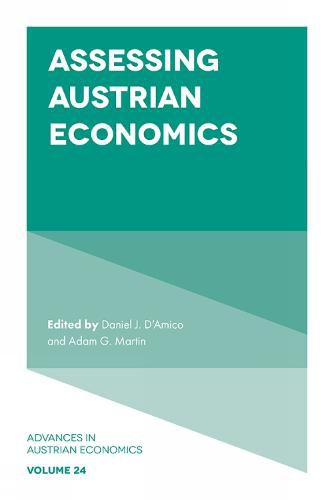Readings Newsletter
Become a Readings Member to make your shopping experience even easier.
Sign in or sign up for free!
You’re not far away from qualifying for FREE standard shipping within Australia
You’ve qualified for FREE standard shipping within Australia
The cart is loading…






The modern school of Austrian economics took shape in the 1970s, and reflects the social science questions of its time. Is it still relevant today, considering that the theories that drive contemporary social science have evolved dramatically over the past few decades? While Austrian concerns such as property rights and imperfect cognition have become more common, other aspects of the Austrian thought are even more idiosyncratic than ever.
In the ten chapters included here, leading economists explore whether Austrian economics still has unique insights to offer the world of today. Starting with Peter Boettke’s lead essay, What is Wrong with Austrian Economics? , chapters include an array of perspectives responding to this question, ranging from economics, to intellectual history, to political science, and to philosophy. At the end of the volume, Boettke offers a rejoinder, asking, What is Right About Austrian Economics?
Together, these essays explore the barriers to the spread of Austrian ideas, ask which disciplines might be receptive to them, examine the role of ideology and funding in helping and hindering the school, and consider the advantages and disadvantages of different strategies for expanding engagement with other scholars.
$9.00 standard shipping within Australia
FREE standard shipping within Australia for orders over $100.00
Express & International shipping calculated at checkout
The modern school of Austrian economics took shape in the 1970s, and reflects the social science questions of its time. Is it still relevant today, considering that the theories that drive contemporary social science have evolved dramatically over the past few decades? While Austrian concerns such as property rights and imperfect cognition have become more common, other aspects of the Austrian thought are even more idiosyncratic than ever.
In the ten chapters included here, leading economists explore whether Austrian economics still has unique insights to offer the world of today. Starting with Peter Boettke’s lead essay, What is Wrong with Austrian Economics? , chapters include an array of perspectives responding to this question, ranging from economics, to intellectual history, to political science, and to philosophy. At the end of the volume, Boettke offers a rejoinder, asking, What is Right About Austrian Economics?
Together, these essays explore the barriers to the spread of Austrian ideas, ask which disciplines might be receptive to them, examine the role of ideology and funding in helping and hindering the school, and consider the advantages and disadvantages of different strategies for expanding engagement with other scholars.